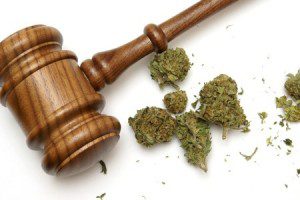 When it comes to DUIs in New Jersey, alcohol isn’t the only substance the state considers capable of affecting one’s ability to drive safely. In N.J.S.A. 39:4-50, the statute is very specific about the substances, outside of alcohol, that could result in a DUI arrest. In the first paragraph of the statute it states:
When it comes to DUIs in New Jersey, alcohol isn’t the only substance the state considers capable of affecting one’s ability to drive safely. In N.J.S.A. 39:4-50, the statute is very specific about the substances, outside of alcohol, that could result in a DUI arrest. In the first paragraph of the statute it states:
“39:4-50. (a) Except as provided in subsection (g) of this section, a person who operates a motor vehicle while under the influence of intoxicating liquor, narcotic, hallucinogenic or habit-producing drug, or operates a motor vehicle with a blood alcohol concentration of 0.08% or more by weight of alcohol in the defendant’s blood or permits another person who is under the influence of intoxicating liquor, narcotic, hallucinogenic or habit-producing drug to operate a motor vehicle owned by him or in his custody or control or permits another to operate a motor vehicle with a blood alcohol concentration of 0.08% or more by weight of alcohol in the defendant’s blood shall be subject: (Continues on to DUI Penalties).”
While this may still seem fairly broad, the statute goes as far as to list the specific chemicals that are found in substances that would impair a person’s ability to operate a vehicle. The law specifies the following:
“As used in this section, the phrase “narcotic, hallucinogenic or habit-producing drug” includes an inhalant or other substance containing a chemical capable of releasing any toxic vapors or fumes for the purpose of inducing a condition of intoxication, such as any glue, cement or any other substance containing one or more of the following chemical compounds: acetone and acetate, amyl nitrite or amyl nitrate or their isomers, benzene, butyl alcohol, butyl nitrite, butyl nitrate or their isomers, ethyl acetate, ethyl alcohol, ethyl nitrite or ethyl nitrate, ethylene dichloride, isobutyl alcohol or isopropyl alcohol, methyl alcohol, methyl ethyl ketone, nitrous oxide, n-propyl alcohol, pentachlorophenol, petroleum ether, propyl nitrite or propyl nitrate or their isomers, toluene, toluol or xylene or any other chemical substance capable of causing a condition of intoxication, inebriation, excitement, stupefaction or the dulling of the brain or nervous system as a result of the inhalation of the fumes or vapors of such chemical substance.”
Being under the influence of any off the above-referenced substances is a basis for a driving under the influence charge. To learn more about this offense and the potential penalties, take a look at our Drug DUI page.
